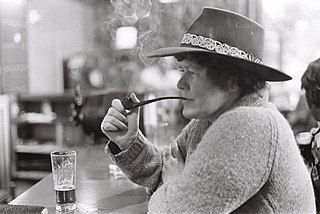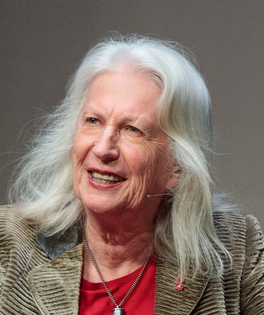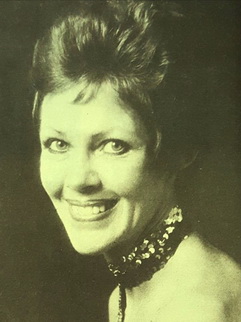Related Research Articles

Keri Ann Ruhi Hulme was a New Zealand novelist, poet and short-story writer. She also wrote under the pen name Kai Tainui. Her novel The Bone People won the Booker Prize in 1985; she was the first New Zealander to win the award, and also the first writer to win the prize for a debut novel. Hulme's writing explores themes of isolation, postcolonial and multicultural identity, and Maori, Celtic, and Norse mythology.

Anika Rose Moa is a New Zealand recording artist and television presenter. Her debut studio album Thinking Room, was released in September 2001, which reached number one on the New Zealand Albums Chart and provided two Top 5 singles, "Youthful" (2001) and "Falling in Love Again" (2002). Moa competed at the Rockquest songwriting contest in 1998, which led to a recording contract. She is the subject of two documentaries by film-maker Justin Pemberton: 3 Chords and the Truth: the Anika Moa Story (2003), detailing her signing to a record label and the release of Thinking Room, and In Bed with Anika Moa (2010) on her later career.

Maria Makarena Owen, known professionally as Rena Owen, is a New Zealand actress in theatre, television and film. Owen is best known for her leading role as Beth Heke in Lee Tamahori's Once Were Warriors and as Taun We in George Lucas's Star Wars: Episode II – Attack of the Clones.
"Now Is the Hour" is a popular song from the early 20th century. Often erroneously described as a traditional Māori song, its creation is usually credited to several people, including Clement Scott (music), and Maewa Kaihau and Dorothy Stewart.

Dame Claudia Josepha Orange is a New Zealand historian best known for her 1987 book The Treaty of Waitangi, which won 'Book of the Year' at the Goodman Fielder Wattie Book Award in 1988.

Dame Mary Anne Salmond is a New Zealand anthropologist, environmentalist and writer. She was New Zealander of the Year in 2013. In 2020, she was appointed to the Order of New Zealand, the highest honour in New Zealand's royal honours system.
The Auckland rugby league team is the team which traditionally represents all of the clubs which play in the Auckland Rugby League competition. As well as a senior men's team there are also Auckland representative teams throughout the various age groups such as under 15s, under 17s, under 19s and under 21s.

Karyn Hay is a New Zealand author and broadcaster. She came to fame as the presenter of 1980s music TV show Radio with Pictures before going on to a career in television and radio.
Nancy Brunning was a New Zealand actress, director, and writer who won awards in film and television and made a major contribution to the growth of Māori in the arts. She won the best actress award at the New Zealand Film Awards for her lead role in the film What Becomes of the Broken Hearted? (1999). In 2000, she won the Best Actress in Drama award at the New Zealand Television Awards for her lead role in the television series Nga Tohu.

Isabella Smith Andrews, known professionally as Isobel Andrews, was a Scottish-born New Zealand playwright, novelist, short-story writer and poet. She wrote over sixty plays, many of which were published, and was associated with the New Zealand branch of the British Drama League. She won the League's annual playwrighting competition four times. Her plays, particularly The Willing Horse, have continued to be performed into the 21st century.
Deane Waretini is a musician from New Zealand. He had a #1 chart hit in 1981 with the song "The Bridge", a Māori language song set to Nini Rosso's tune "Il Silenzio". He is also the son of a historically significant Maori baritone singer and recording artist. In later years, Waretini was featured in a New Zealand television production that was built around him.
Bunny Te Kokiri Miha Waahi Walters was a New Zealand singer who had a number of New Zealand hits during the 1970s. He is best known for the hits "Brandy" and "Take the Money and Run".
Leonara Elizabeth Grant, known professionally as Lee Grant or Miss Lee Grant, was an English-born New Zealand actress and singer.
Tony McCarthy Recordings was a New Zealand record label owned by record producer Tony McCarthy. Some of the artists on the label were Deane Waretini and Mahia Blackmore. The label is also a representation of the only released recordings by singer Abe Phillips who was killed in an accident in 1971.
Mahia Blackmore was a New Zealand singer and bandleader who got her start as a singer in the 1960s. She was referred to as New Zealand's own queen of rhythm and blues. She was also part of the Billy TK band Powerhouse. She was profiled on Whenua, a radio show presented by Hēnare te Ua on numerous occasions.
Salem was a New Zealand record label that lasted from the mid 1960s to the early 1970s.
Will Crummer is a Cook Islands singer and entertainer who was well known in the 1960s in both Auckland, New Zealand, and the Cook Islands. He released EPs and albums during the 1960s, and along with Pepe and the Rarotongans, was a pioneering Cook Islands artist. His is also the father of singer Annie Crummer.

Lynne Kera Barnett as Lyn Barnett was a New Zealand singer who had success in her home country. Later she moved to Australia and also became popular there. She made many appearances on Australian TV. She had a hit with a cover of "Please Mr. Postman". She was also the sister of singer Christine Barnett. She died some time in early 2017.

Dame Ruia Mereana Morrison is a retired New Zealand tennis player. Morrison was the first New Zealand woman and the first Māori person to play at Wimbledon and reached the quarter-finals in 1957. She also won 13 national New Zealand tennis titles.

Erima Maewa Kaihau was a New Zealand composer, pianist and music teacher, sometimes known as Louisa Maewa Molesworth. She is best known for her contributions to the song "Now Is the Hour", and composed several other popular songs in both Māori and English.
References
- ↑ Artist Trove Bridgette Allen
- ↑ The Age , Friday, 12 February 1993 Page 37
- ↑ News article, November 25th 1971 BIG ABE HEADS THEM By Judy McGregor
- ↑ New Zealand Woman's Weekly, 17 January 1972 Page 71
- ↑ Auckland Star , 14 April 1970 Bridgette Allen has now made Auckland her headquarters
- ↑ The New Zealand Herald , 27 February 1971 Allen is now in Tahiti
- ↑ Auckland Star, 17 March 1971 Up-dated Maori group to lure
- ↑ New Zealand Herald, 29 May 1971 Bridgette Allen had to turn down a contract
- ↑ The Sunday News July 1971 Hold on America - we're coming
- ↑ The Sunday Herald, 8 April 1973 Page 37
- ↑ Auckland Star, 11 June 1975 Bridgette Allen has left for Australia
- ↑ New Zealand Herald, 12 April 1975 Bridgette Allen has been studying the club scene in Australia
- ↑ New Zealand Herald, 19 May 1976 Bound for Australia
- ↑ The New Zealand Listener , 14 February 1981 Article on the life and career of Bridgette Allen
- ↑ New Zealand Woman's Weekly 20 September 1982 Page 20 - 21
- ↑ The Auckland Star, 13 January 1987 Sec B p 1, 4, Background on New Zealand jazz singer now based in Melbourne
- ↑ National Library of New Zealand Call me Bridgette (sound recording) / Bridgette Allen
- ↑ National Library of New Zealand An evening at Tommo's Place (sound recording) / Bridgette Allen, Ray Woolf, Martin Kini and the Trinity
- ↑ Discogs Tina Cross – You Can Do It
- ↑ NZ On Screen The Club Show - 12 May 1979
- ↑ Murdoch University Dr Melanie Rodriga, Selected Publications –
- ↑ The New Zealand Archive of Film, Television and Sound Ngā Taonga Sound & Vision Catalogue → F6624, Hooks and Feelers Archived 16 September 2016 at the Wayback Machine